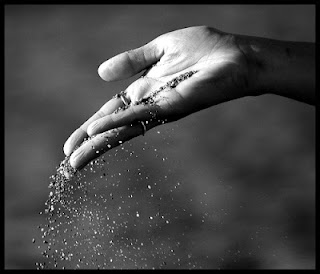If you look closely you'll see that many of the
problems of your life are essentially that of control vs non-control.
You are composed of a body and a mind. You experience the
mind within a body and within the mind is an ego-self. The ego-self is simply the identification of your "self" as really YOU.
The ego-self, or that which you refer to and identify as
“I-me,” is actualized or made "happy" through applying controls to the world, and the people in your world, while at the same time resisting the controls imposed on you by the world and others. You seek to control
situations, events, people and especially your “self.” Yet, you are also seeking to avoid being controlled by situations, events and, most importantly,
by other people. Hence, there is a state of life-tension as you must
always be on the lookout and resistant to controls applied to you, while also seeking to determine what life variables you can control in order to achieve happiness. We all will accept a certain degree of control, but too much becomes stifling and we experience a loss of freedom.
Everybody believes they know what they need to be “happy" and so we
all seek to control the variables, whether internal or external, that lead to
an experience of “happiness.” This may mean going back to school, getting a better paying
job or starting a business, attaining a divorce or getting married, having
children, going on vacation, exercising, eating right, socializing with
friends, etc, etc. These are all forms of control or self-actualizing to attain
a “happy,” or “happier,” state of mind. In relationships control is often the
chief motivator between combative individuals, each thinking they know what the
other should be doing and, thereby, seeking to enforce control upon that action or behavior.
The ego-self, or “I-me” identification seeks to control its
environments in order to obtain the state of happiness it desires. This control
is often so blatant and demanding that the very idea of non-control is contrary
to functioning and we resist any surrender or retreat from the need to control. We believe that if we do not control the things in our personal
world we will not be happy. Hence, we apply ever greater control over things
and people. Yet, this can cause people and events to assert ever greater control upon us thereby magnifying life-tension and increasing our own personal suffering.
What many fail to realize is that often the
more control applied to a situation, event or person, the worse the situation becomes. But this only supports our efforts to expend even more control, rather than letting go of control.
This situation can become quite disastrous when two or more are attempting to
assert control over each other and, in the macro-world, we could even say that
it is the main ingredient in most wars.
An important life skill is the ability
to exercise non-control. Recognizing the need to allow a person, situation or event to unfold and
naturally manifest as it will, by stepping back, ceasing all control and merely becoming witness. Waiting and witnessing, as opposed to immediately jumping in with a desire to
twist and bend reality (and people) to fit your prerogatives and
preferences, is often more advantageous to the life path of other people and yourself. Often letting go of what you think will make them “happy,” simply because it is your preference, and being open
to the spontaneity that comes with the freedom from control is the best course of action for harmonious relations and peaceful co-existence.
"God grant me the
serenity
to accept the things I cannot change;
courage to change the things I can;
and wisdom to know the difference."
to accept the things I cannot change;
courage to change the things I can;
and wisdom to know the difference."

No comments:
Post a Comment